Here is my recipe for a traditional Greek New Year cake or Vasilopita as we call it in Greek, that is full of aromas, it’s soft and moist. Depending on the region, you can find different types of vasilopita, some are cakes like this one or a tsoureki (sweet brioche) and then you have savory ones made with cheese or meat. One of the key ingredients of the New Year’s cake version that makes it so aromatic, is mastiha! I know, you are probably thinking, what is mastiha and where can I find it?!
Mastiha is a resin coming from the mastic tree that mainly grows on the Greek island of Chios. It was used in ancient Greece as a medicine for digestion and colds, and also as a breath freshener. Today, if you travel to Greece, you will find many shops that sell products using mastiha tears as a key ingredient. It’s used for beauty products, cooking and baking, alcohol and chewing gums.
Outside of Greece, you can buy mastiha tears at Greek and Mediterranean food stores, online retailers or spice shops. They are usually sold in small bags that have around 10grams of mastiha tears tear drops inside and can last for a few years. Mastiha has quite a strong flavor, so when used in baking and cooking, you will only need 1-2 grams, around ½ a teaspoon.
Vasilopita lucky coin
The Greek New Year’s cake is not just a cake that we have for dessert though. We hide a coin inside and whoever gets the coin, will have luck for the whole year. We usually wrap a silver coin in some kitchen foil and add it to cake before or after we bake it. In the past, some families they used to put an actual golden coin that had some value, so whoever got it had luck and also got the valuable coin.
When it’s time to cut the cake, the main host of the house is usually the one to cut it. The first piece goes for Christ and the second for the house. After that, we cut one piece for each member of the family.
Jump to:
Why you should try my recipe
- Great moist texture, very aromatic and soft.
- Easy to follow steps that even a beginner baker can follow.
- Cooks in only 45 minutes.
- Can last for a few days at room temperature.
- Nut-free, perfect for people with nut allergies.
Ingredients & How-to
The main ingredients for this Greek Vasilopita recipe are butter, powdered sugar, eggs, oranges, yogurt, self-rising flour, baking powder and mastiha tears.

Mamazilla's Product Recommendations
Great aroma and enough mastiha tears for 5-6 recipes since you'll only need a little bit each time.
Buy On Amazon01. I start by mixing the butter and powdered sugar. The butter needs to be at room temperature especially if you are using a hand mixer. Use a big bowl, otherwise you will end up with clouds of powdered sugar all over the kitchen.
02. I mix the butter and sugar for about 5 minutes. We want the batter to become double in size and get white and fluffy. That’s what is going to make our cake light and soft in the end, so be patient.
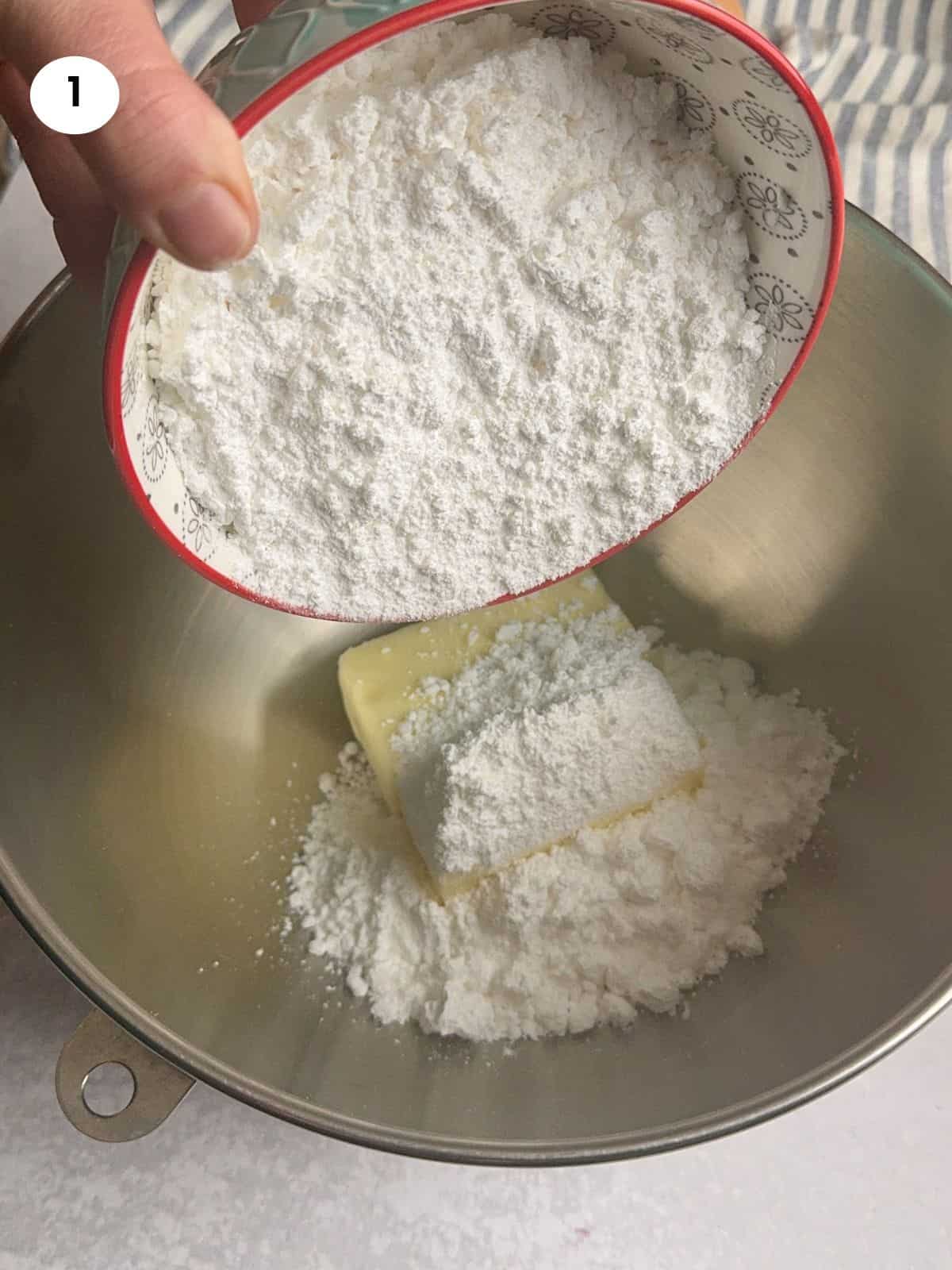
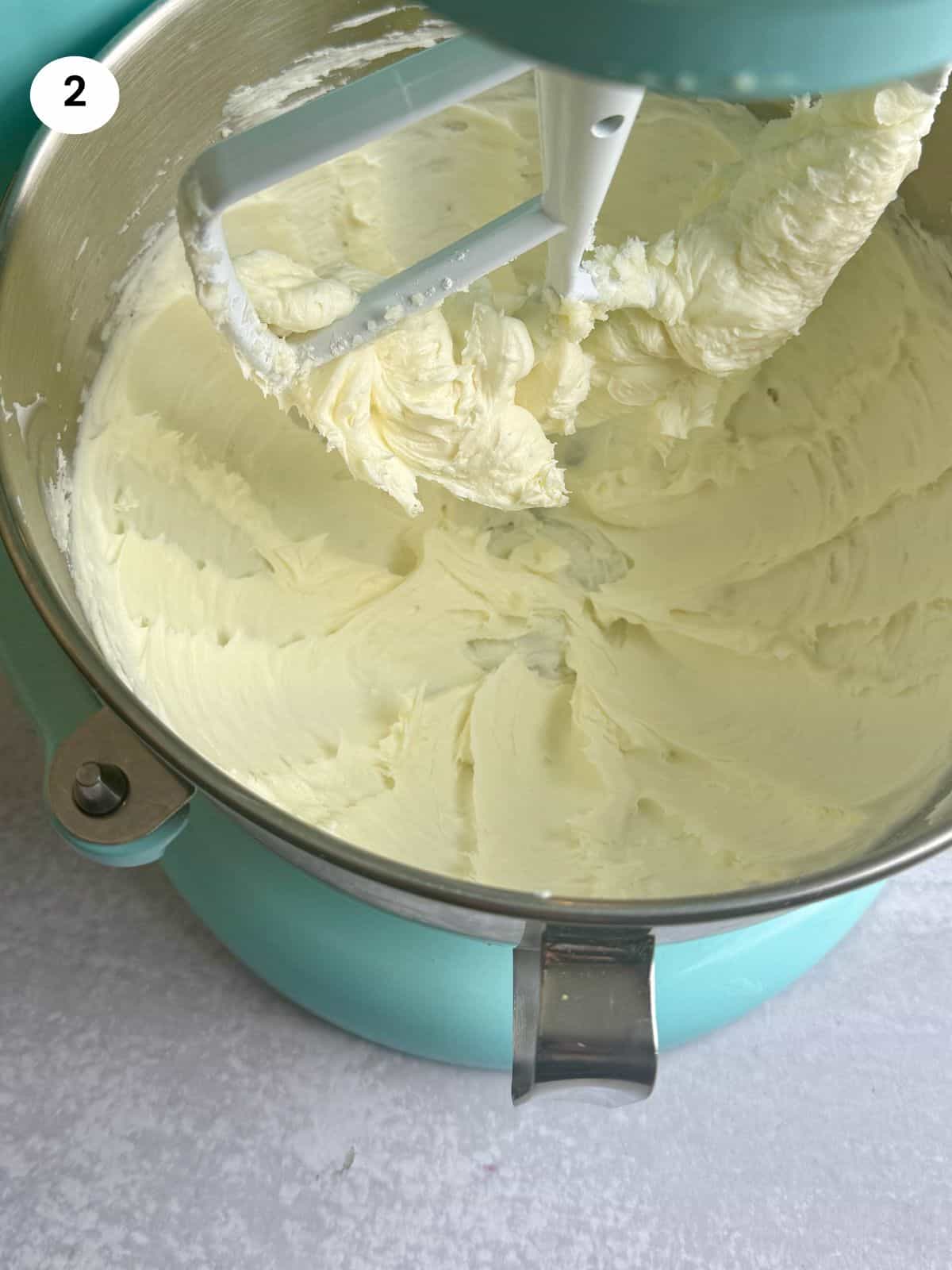
Mamazilla's Product Recommendations
This mini KitchenAid stand mixer is a high quality mixer and a bit smaller than the expensive bigger version they have. If you are not a heavy duty baker or don't have a lot of space, I highly recommend it.
Buy On Amazon03. Next, I’m adding the eggs one at a time. I continue using the electric hand mixer or stand mixer to incorporate the eggs. The batter will get a bit more yellow from the eggs but it will remain fluffy.
04. Now we are done with the standmixer and I’m going to use a spatula to incorporate the rest of the ingredients. I add the zest from 2 oranges and the juice of one of them, that will be around ¼ of a cup. The cake will have a nice orangy flavor that you are going to love. I add the yogurt to the batter and then gently mix with the spatula. Remember, we don’t want to lose any of the volume.
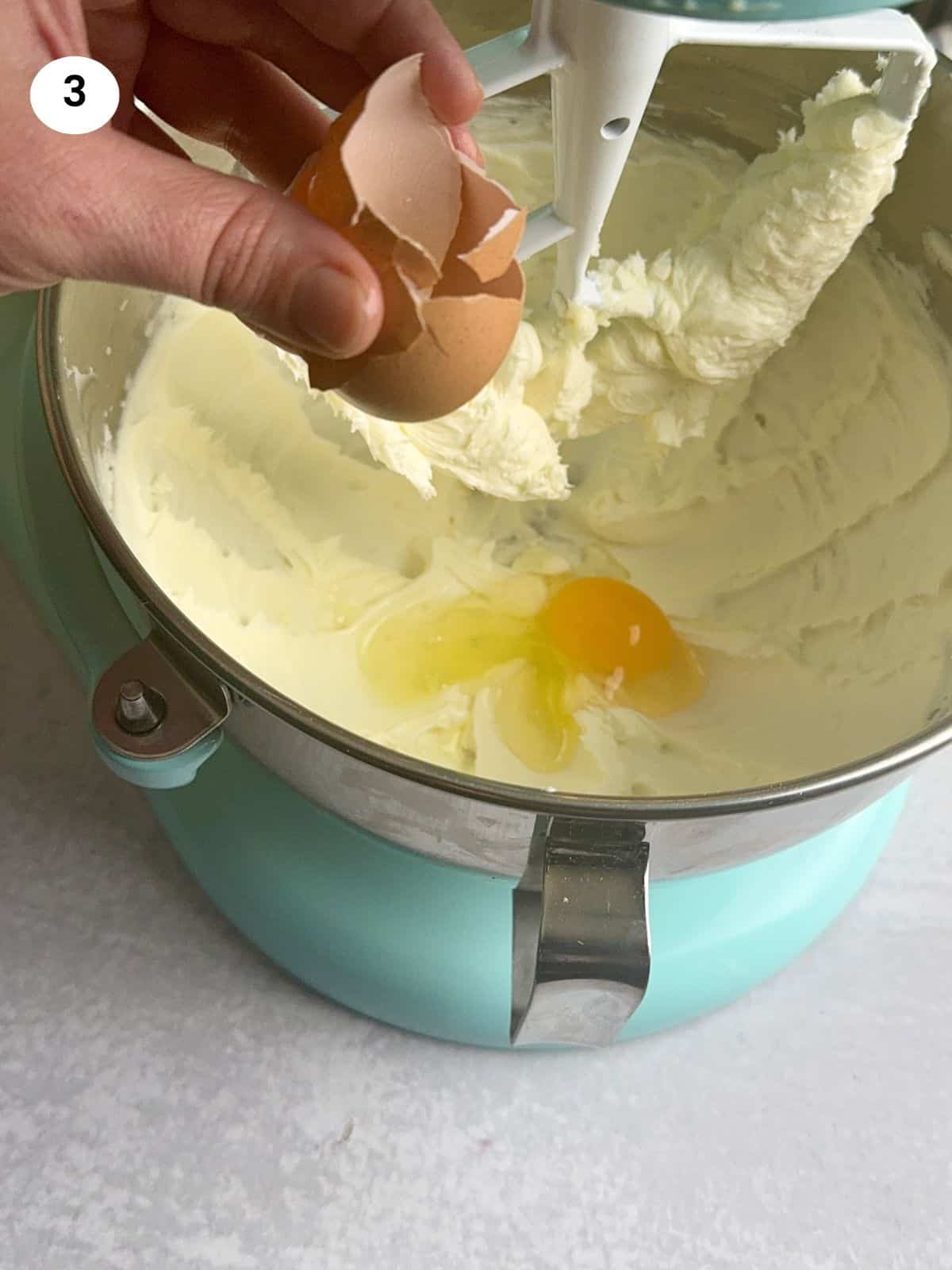
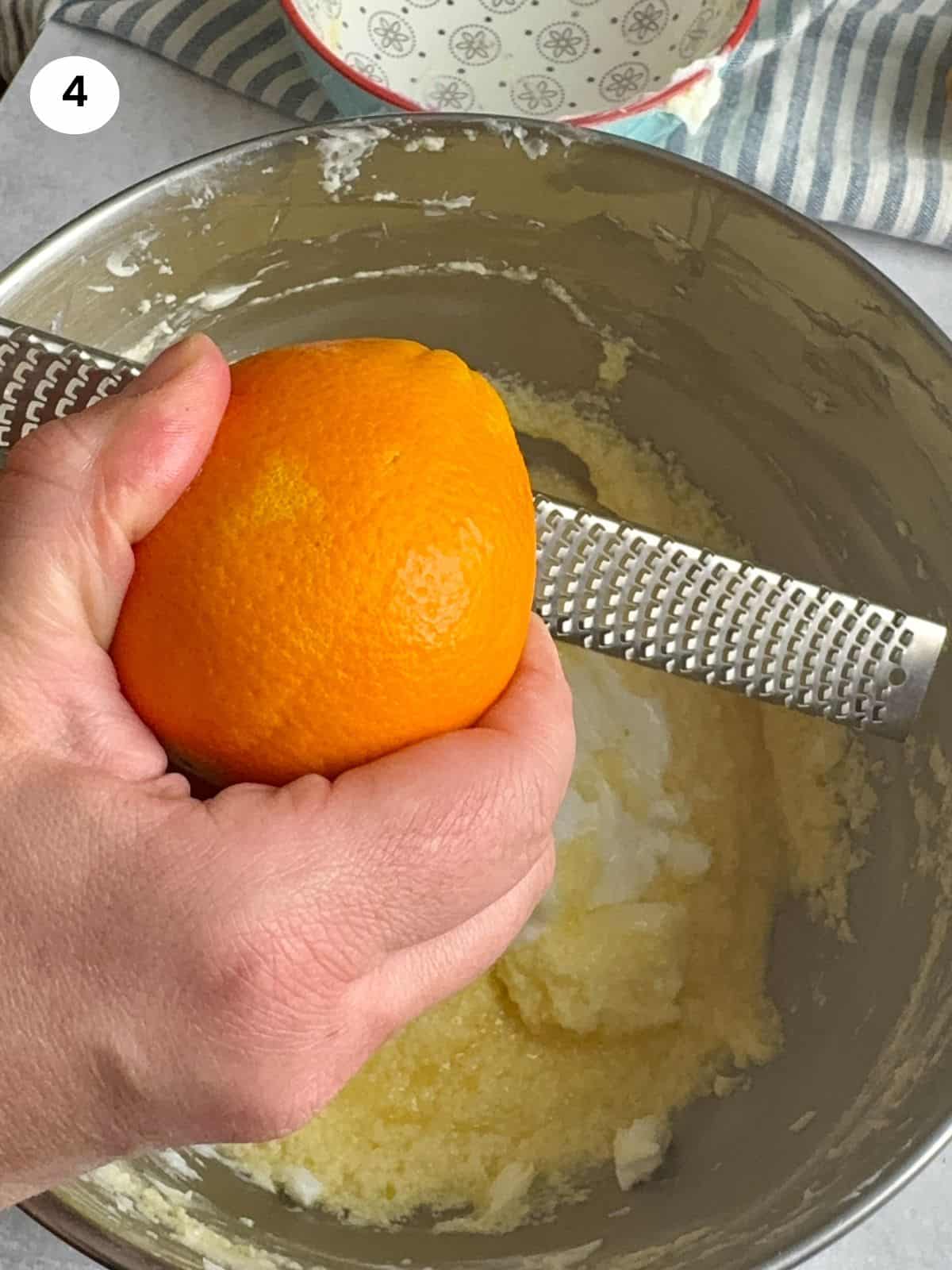
05. Now it’s time for the dry ingredients. I add the mastiha tear drops into a spice grinder with a tablespoon of granulated sugar. I blend it well until it is fine and fluffy like powder. Alternatively, you could use a pestle and crush the mastiha tears with the sugar until it’s fine.
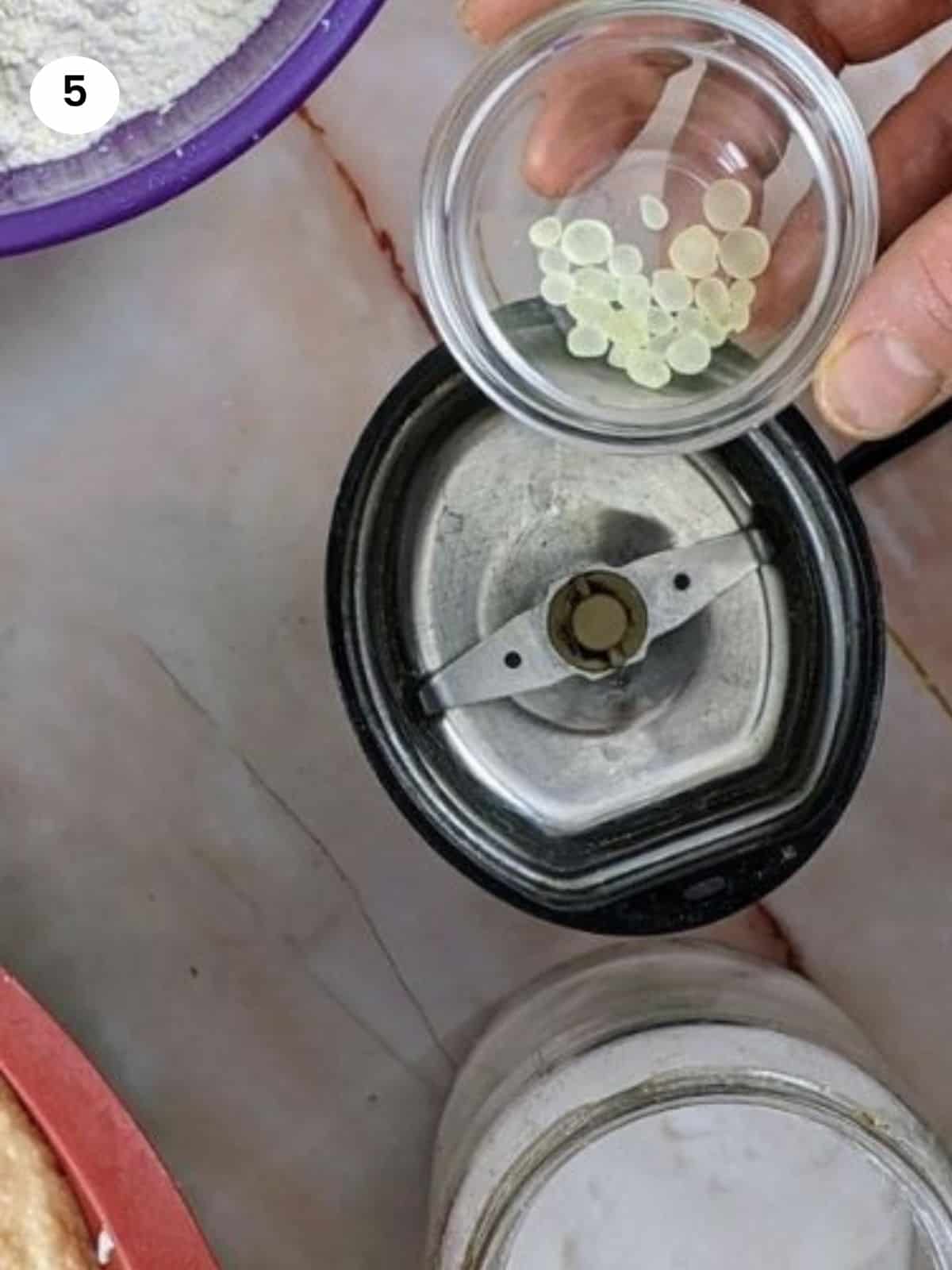
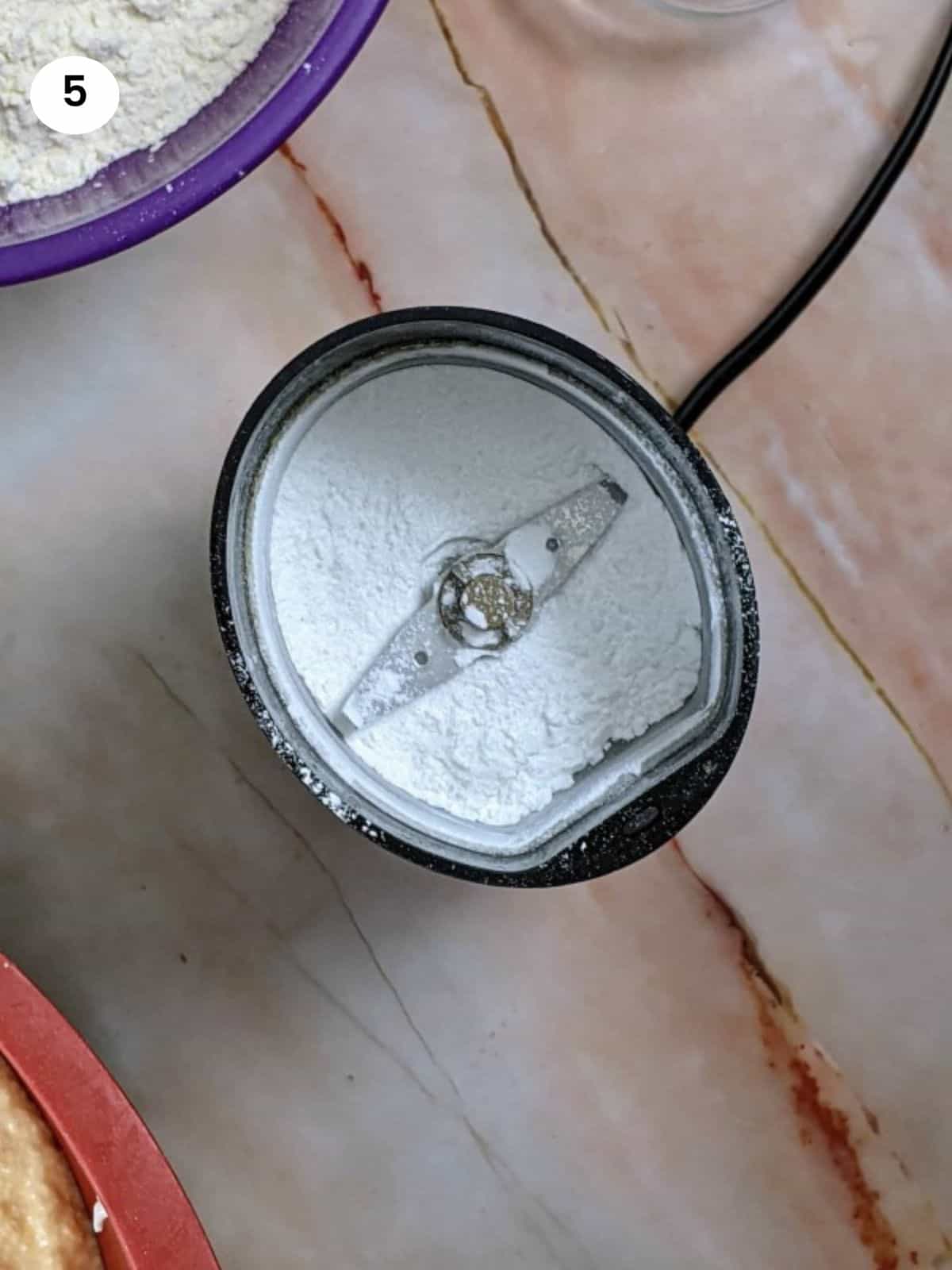
Mamazilla's Product Recommendations
This is a strong little grinder with sharp blades, great for grinding coffee and for nuts and spices.
Buy On Amazon06. In a bowl, I mix the self-raising flour with one teaspoon of baking powder and the mastiha powder.
07. Then, I add the dry ingredients to the batter and using a spatula or a wooden spoon, I mix everything together gently. Try not to overmix it as we want the batter to remain fluffy and light, we did work hard to beat the butter with the sugar.
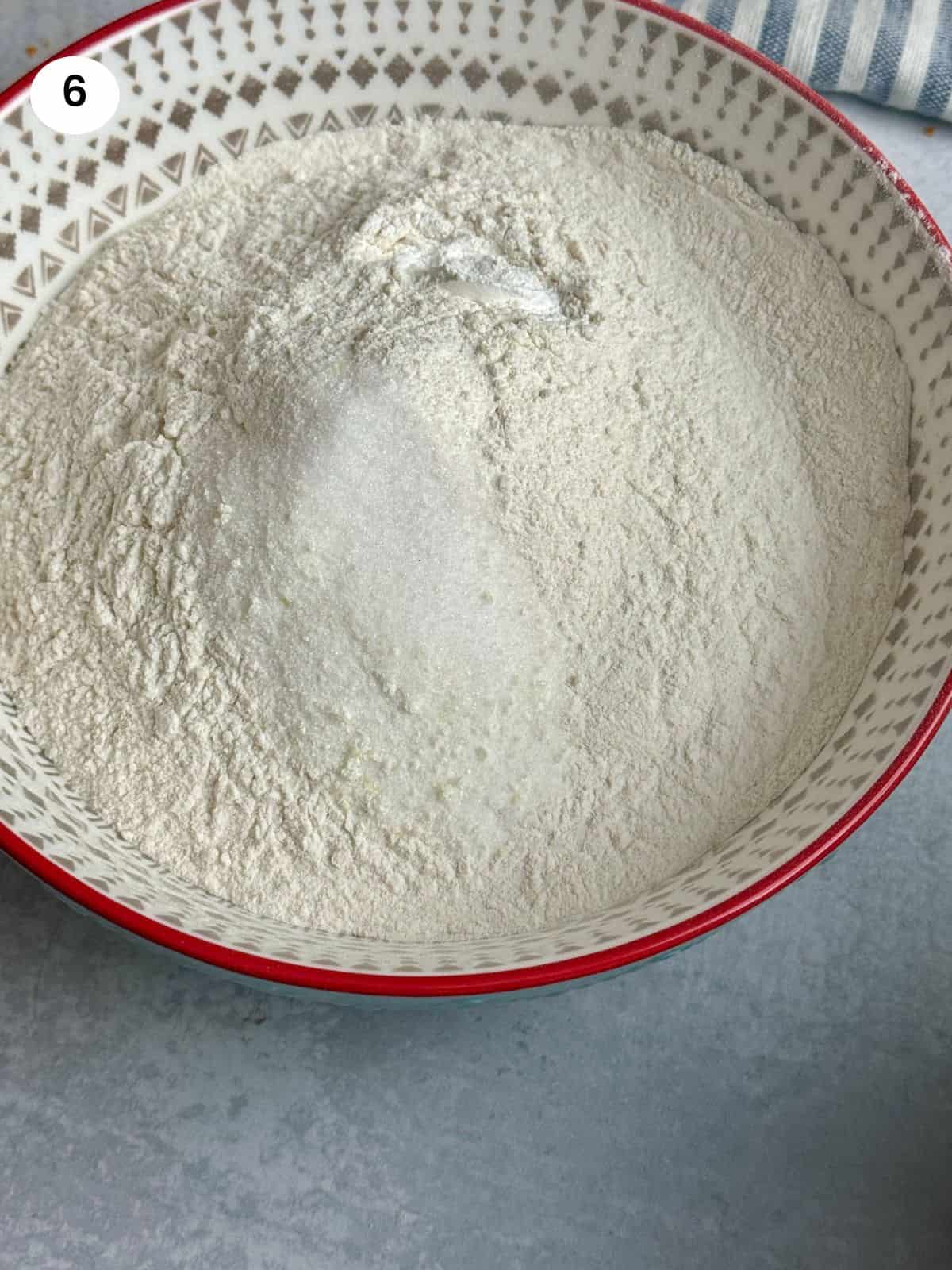
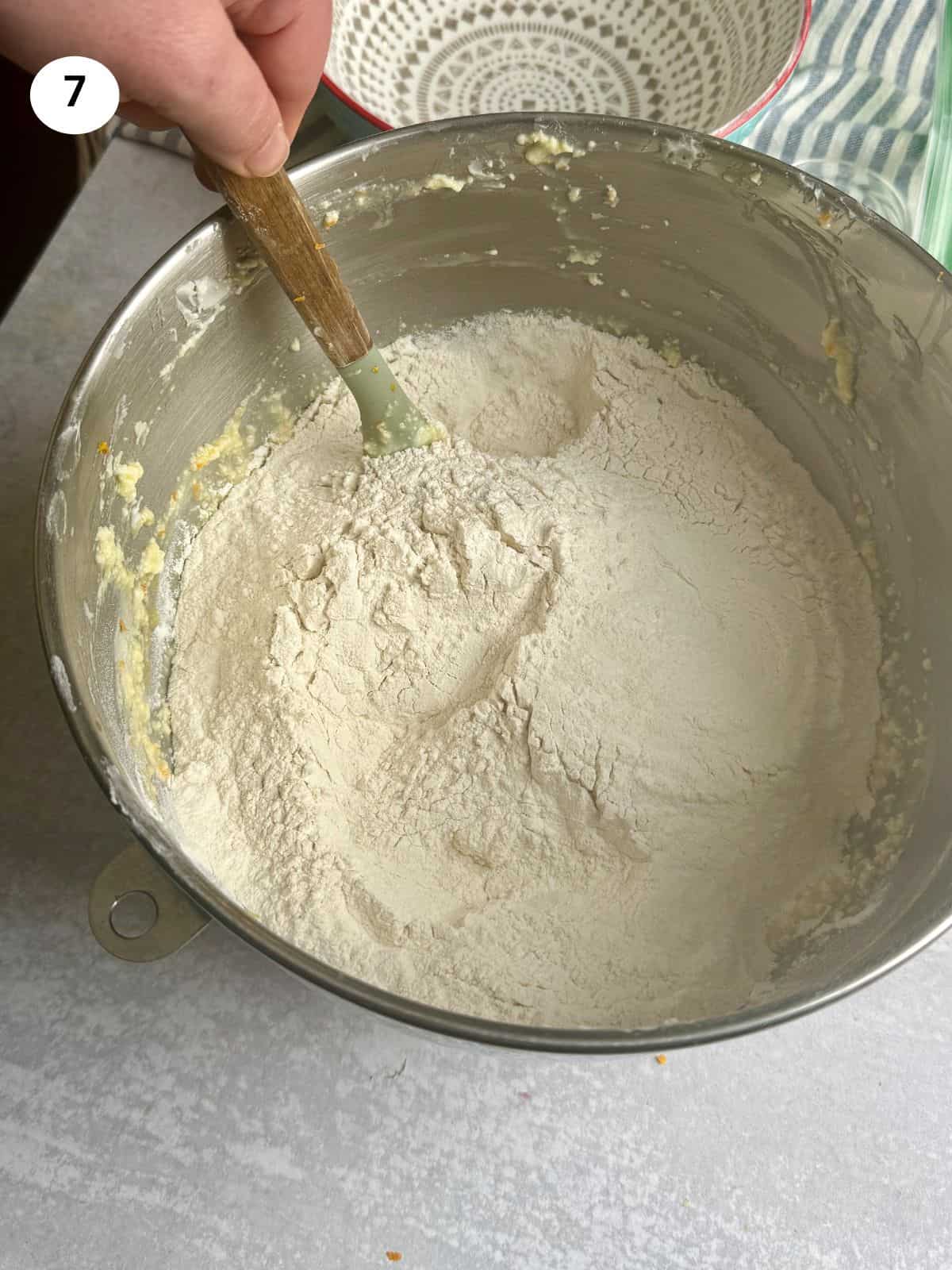
08. I’m using a round cake tin around 23cm / 9in. Make sure you brush the sides with some butter to help the cake rise evenly and to remove the tin easier when the cake is baked. At the bottom of the cake tin, I like to add some parchment paper that is cut in a circle, but if you don’t have any then you could also brush it with some butter.
09. I add the batter to the cake tin and distribute it evenly in the cake tin. Try not to scrape any butter from the sides, as that will make the cake to rise in the middle and the sides to stay low.
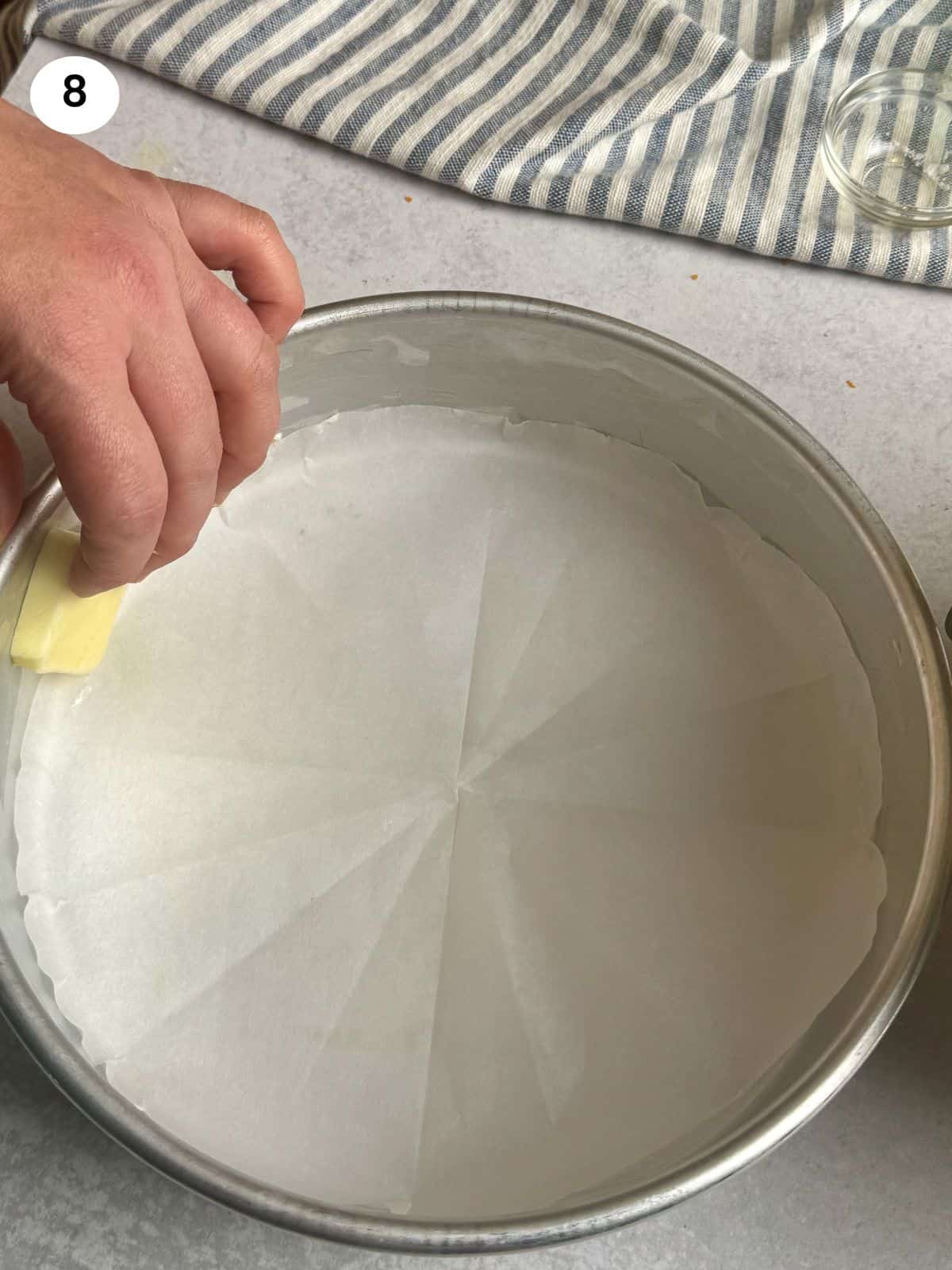
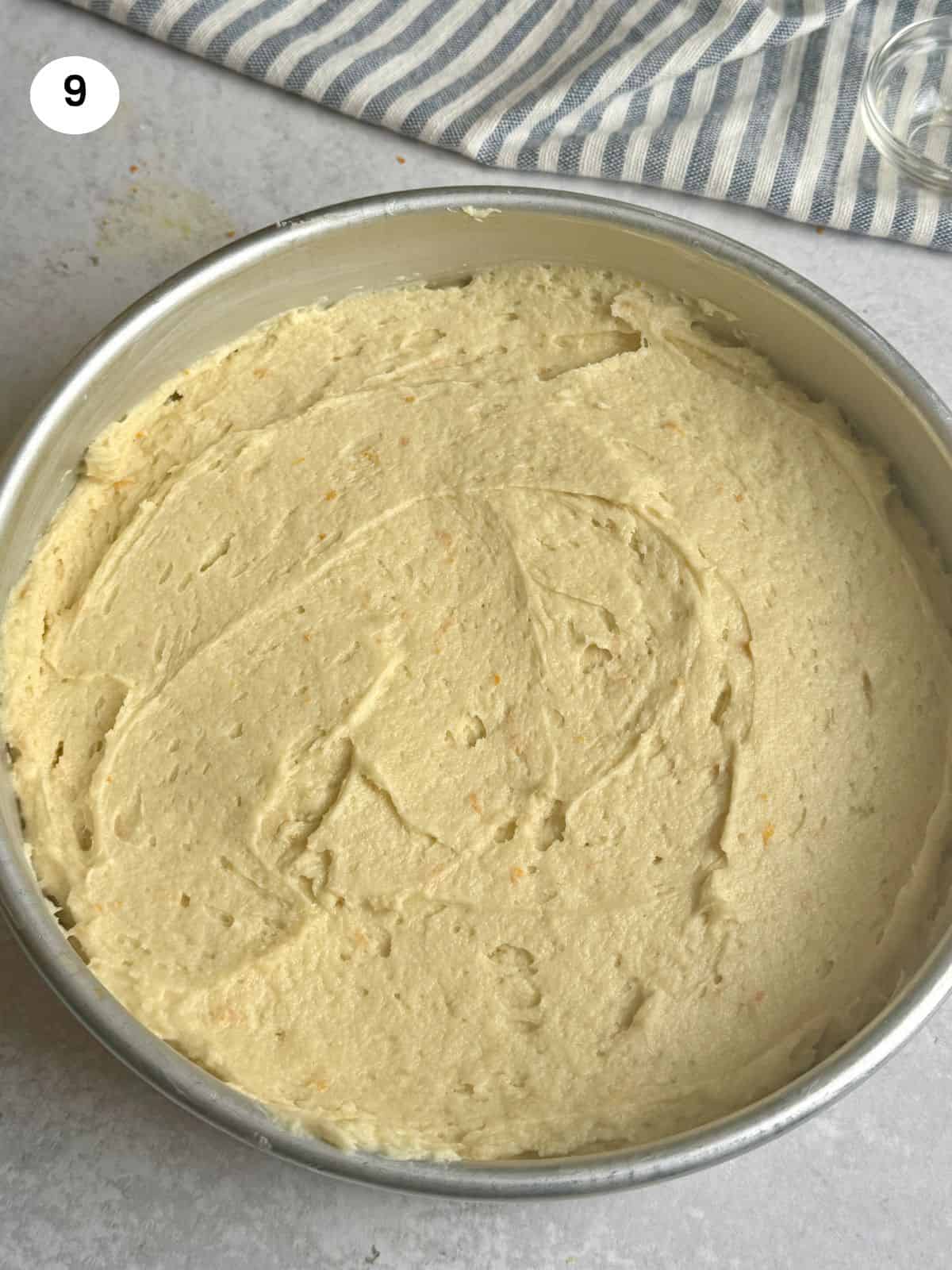
10. Before putting the cake in the oven, I put the lucky coin in. I give the coin a wash and then I like to wrap it with some kitchen foil. Just pick a coin that is not very small, as you don’t want anyone to choke with it accidentally. I put the coin vertically inside the cake batter and it’s now ready for baking.
11. I then place the cake tin in the center of the oven and bake for about 45 minutes. The oven must be preheated, otherwise the cake will not rise properly. After 45 minutes, you can open the oven and check with a knife or wooden stick if the cake is ready or needs to be left in for a few more minutes.
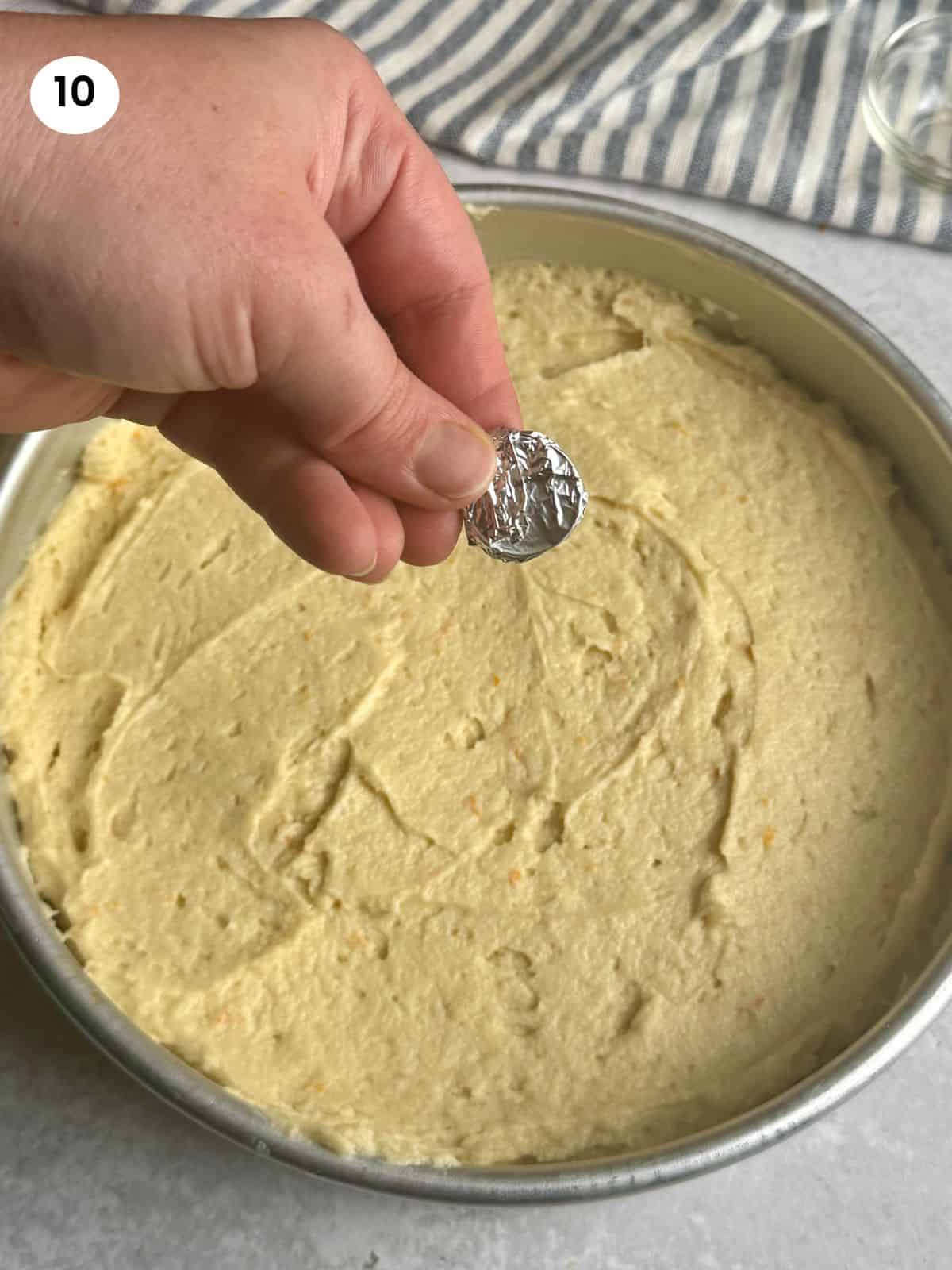
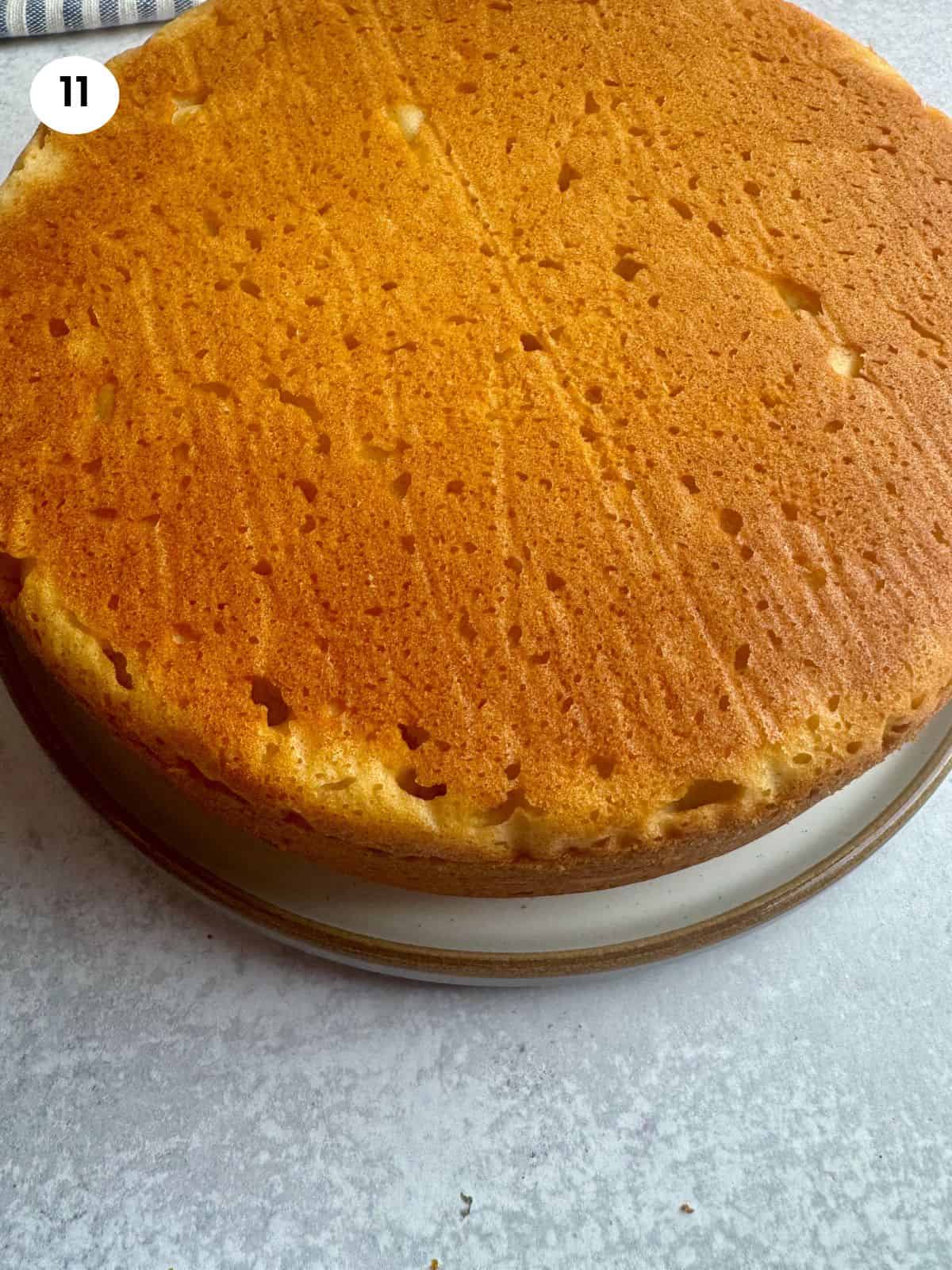
Decorating the Vasilopita
Usually we decorate the Greek New Year’s cake by dusting it with powdered sugar and using some number stencils to form the new year date. You could also try a glaze and use some chocolate buttons to write down the year or a wish. Be creative and maybe you can involve little children as they will love this.
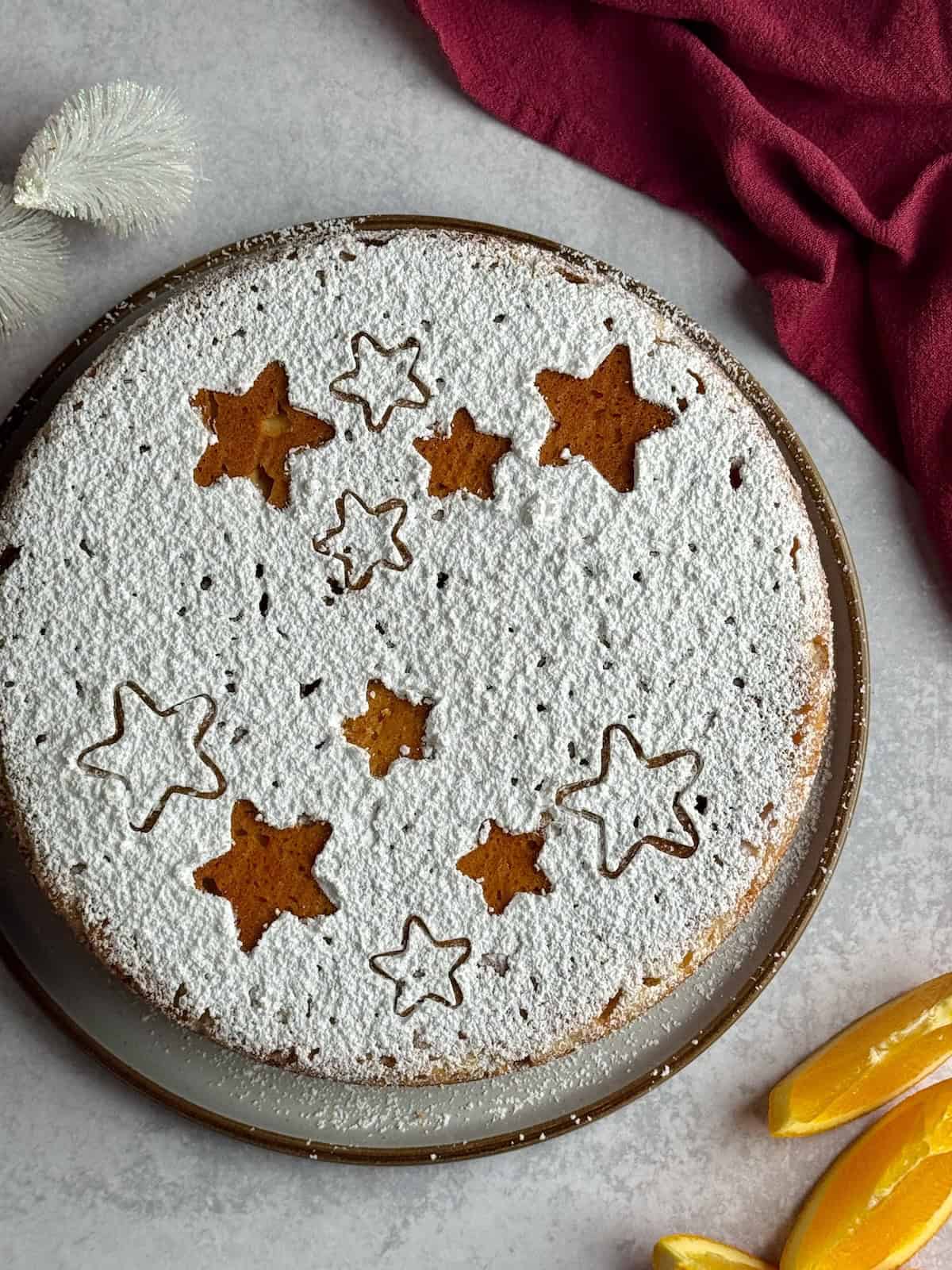
Serving suggestions
We usually cut the new year cake on New Year’s eve after midnight when the year changes. The first piece is for Christ, the second for the house and then we cut one piece for each member of the family. Often, you will see people breaking down their slice of cake to see if they won the lucky coin. If your family is small, then the pieces for each one might be a bit big to have at once, so you can leave some for the next day. Vasilopita is great for breakfast with a cup of coffee or tea.
Storage
If you have any leftover vasilopita cake, you can just store it at room temperature and consume within 4-5 days. You will find that it might get a little be hard after a couple of days, but still tastes great.
FAQ
Traditionally, the main host is the one to cut the Greek new year's cake. The first slice is for Christ, the second for the house and then you cut one piece for each member of the family. Whoever gets the lucky coin will have luck for the whole year and sometimes some money or a charm.
In Greece, you will find that the new year cake is usually cut in new year's eve around midnight at the year change. People will eat some of their piece and quite often leave some for next morning.
Different regions of Greece have different types of new year cakes, some are sweet and some savoury. The most common one is vasilopita cake that contains orange zest, mastiha and sometimes mahlab.
If your new year's cake comes out too dense then you probably didn't beat enough time the butter and sugar, or you overworked the mixture at the end of the recipe when adding the flour. We are using self-rising flour that has rising agents in it so make sure you don't accidentally use all-purpose flour instead.
If you tried my Vasilopita - Greek New Year Cake or any other recipe on my website, please leave a 🌟 star rating and let me know how it went in the 📝 comments below. I love hearing from you!
Recipe
Vasilopita - Greek New Year Cake
This Greek New Year cake is full of aromas from the oranges and mastiha, and so soft and moist from the butter and the yogurt. Remember to wrap a coin in foil and tuck it inside the cake—whoever finds the coin will enjoy good luck all year. Wishing everyone a Happy New Year!10-12 servings
20 minutes
Ingredients
- 220gr / 2 sticks of butter at room temperature
- 2 cups / 260gr powdered sugar
- 4 eggs
- 2 oranges
- 3 cups / 400gr self-rising flour
- 1 teaspoon baking powder
- ½ teaspoon (1.5gr) mastiha tears
- 1 cup / 200gr Greek yogurt
- 1 tablespoon granulated sugar
Equipment
- stand mixer (paid link)
- spice grinder (paid link)
Instructions
- Using a hand or stand mixer, mix well the butter with the icing sugar for 5 minutes until it's light, fluffy and doubled in size.
- Add the eggs to the mixture, one at a time, and continue mixing until incorporated.
- Add the zest from 2 oranges, the yogurt and the juice of one of the oranges (¼ cup). Mix everything with a spatula.
- Using a pestle or a spice grinder, mix the mastiha drops and one tablespoon of sugar until it's fine like powder.
- Add the flour, baking powder and the mastiha mix to the wet ingredients. Gently mix using the spatula until all incorporated.
- Brush the sides of a 9inch cake tin with butter and add a round parchment paper inside the batter. Using a spatula, gently distribute the batter. At this point, you can wrap a coin with some kitchen foil and put it vertically inside the cake.
- Bake in a preheated oven to 180°C/350°F for 45 minutes (use a skewer to check if it's done). When ready, leave it to cool down for 5-10 minutes before removing it from the tin and decorating the cake.
Notes
- The cake batter will be light and fluffy from beating the butter with the sugar. When incorporating the flour, try to mix gently as we don't want it to lose any air and get dense.
- I like to add some parchment paper to the bottom of the cake tin, so it's easier to remove it after baking.
- You could decorate the cake with powdered sugar and use number stencils to add the current year or use some glazing.
Storage
You could store the cake at room temperature for up to a week. Cover with a lid or some kitchen foil, so it doesn't dry out.
Nutrition Info (per serving)
I am not a nutritionist. The nutrition information has been calculated using an on-line calculator, and is intended for information and guidance purposes only. If the nutrition information is important to you, you should consider calculating it yourself, using your preferred tool.

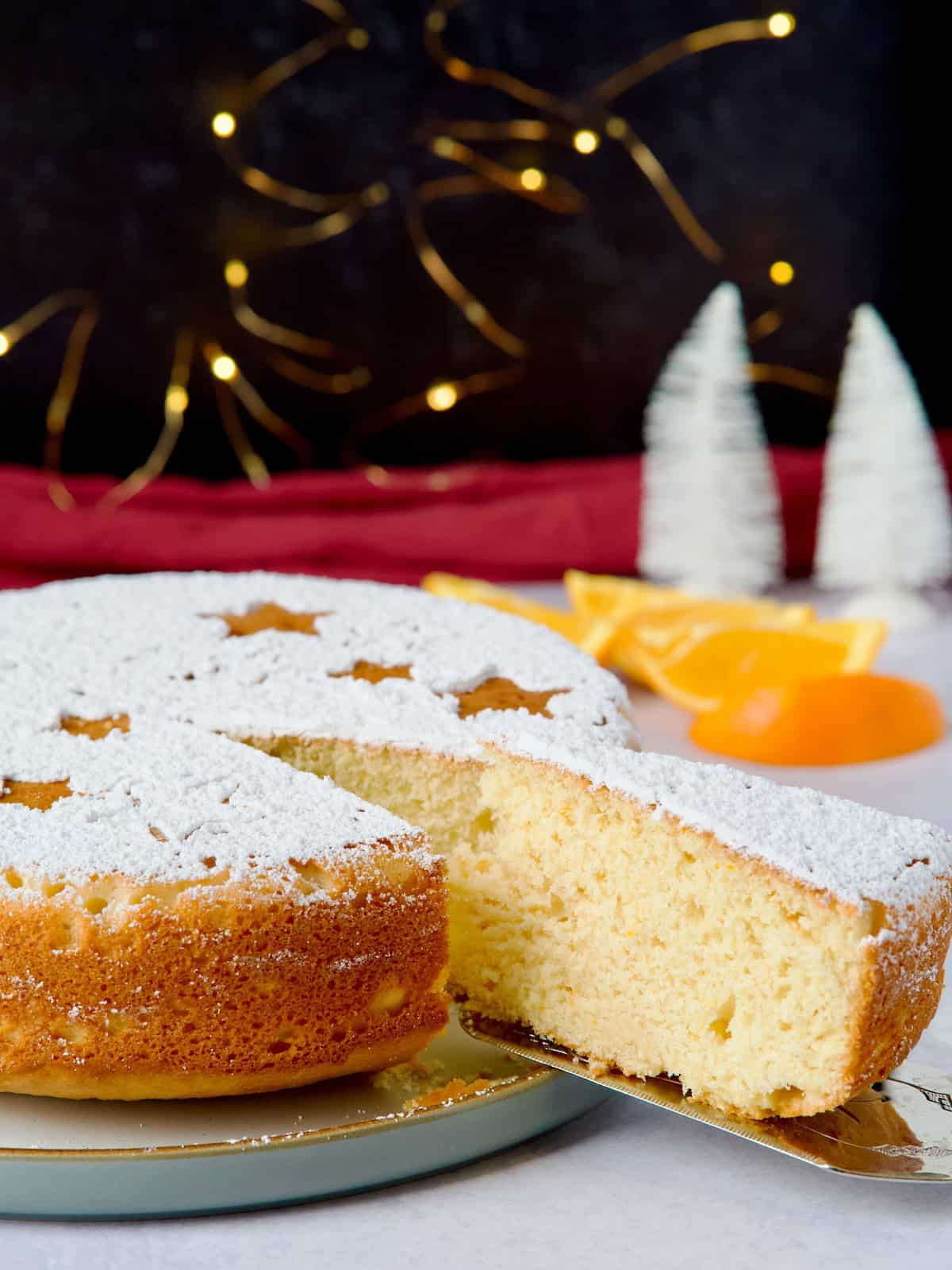



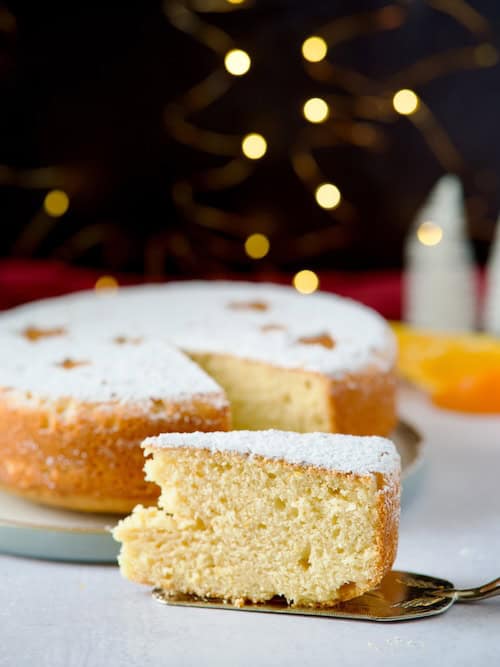
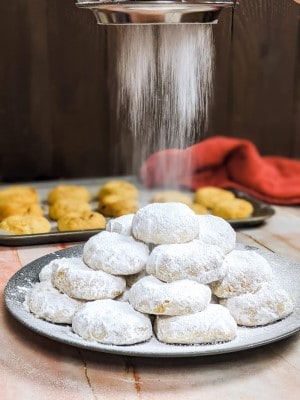
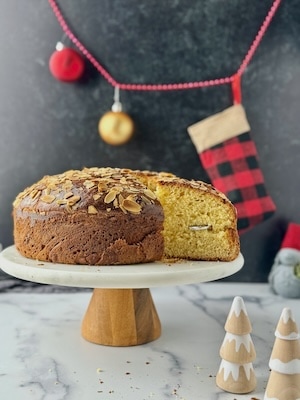
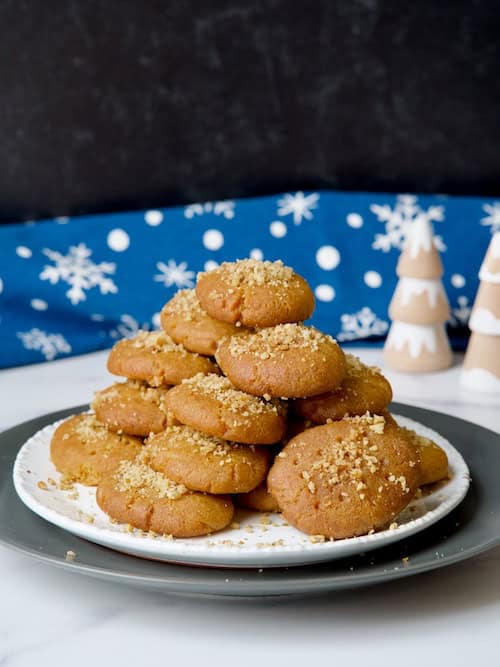

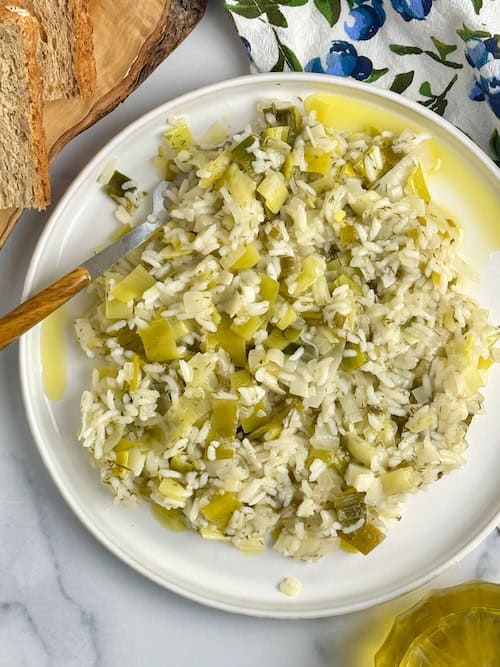
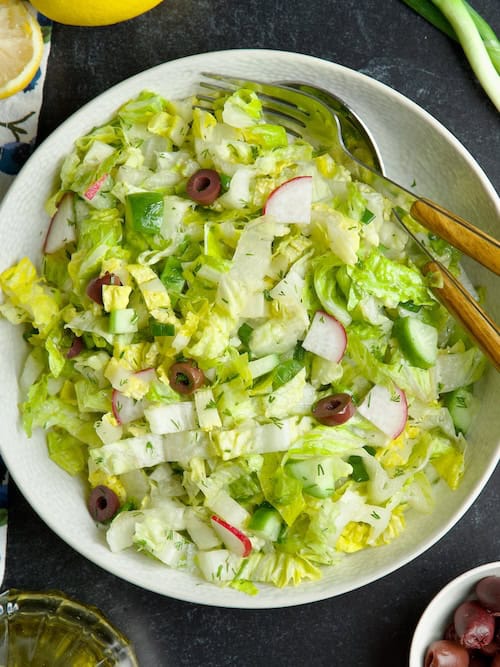
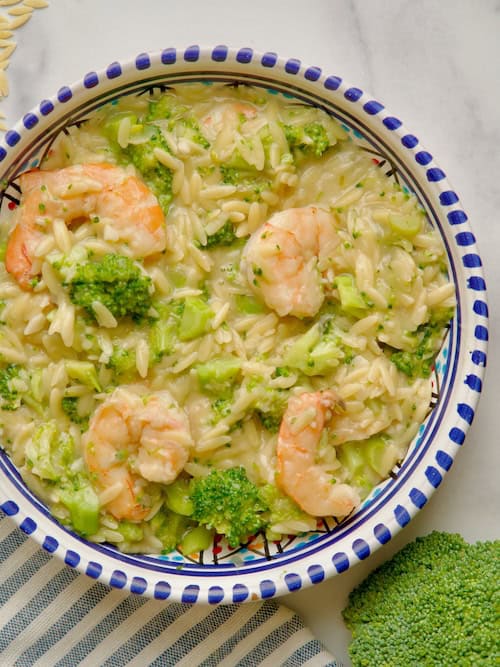
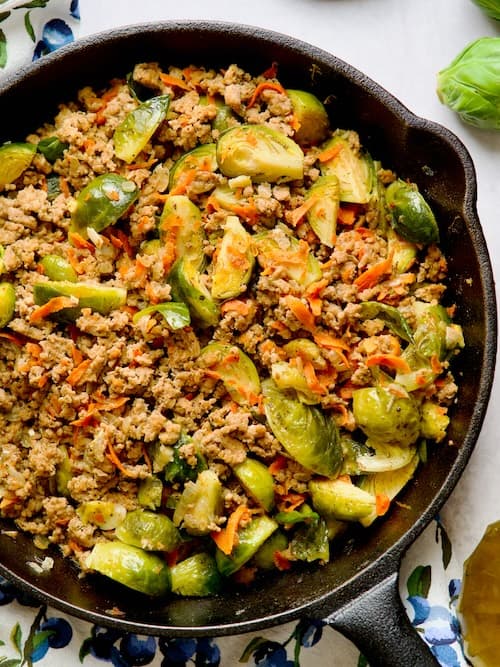
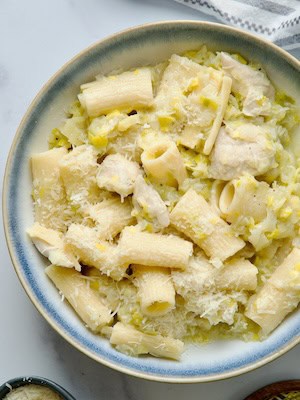
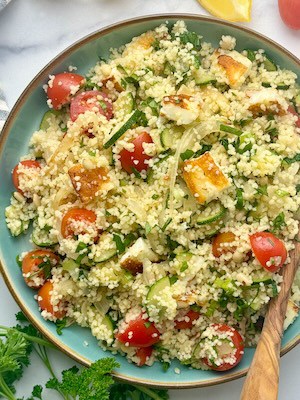
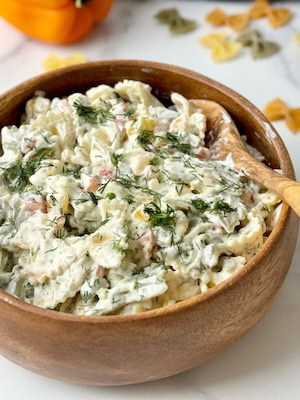
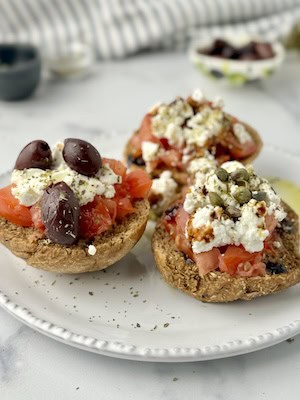
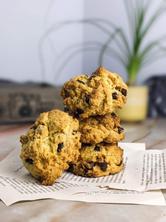
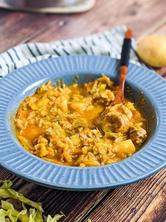
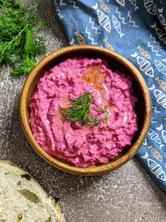
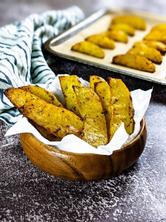
Comments